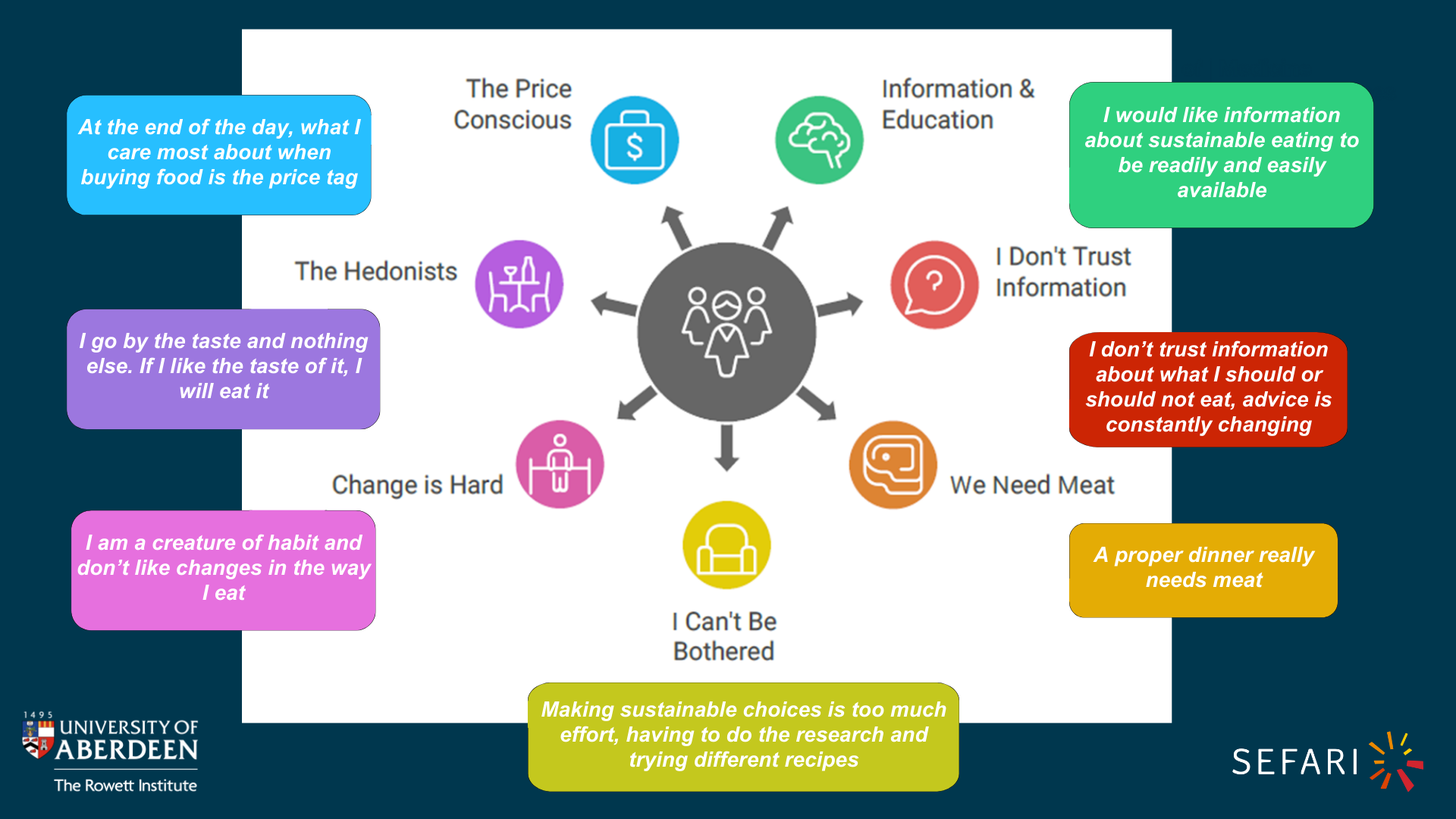If there is one thing that we can all agree on when it comes to sustainable diets it is…well, nothing at all.
That is one of the most striking – and useful – findings of our recent research into what is stopping us changing what we eat to help tackle climate change.
We gave people 43 different statements on the issue to rank according to how much they agreed or disagreed in a way that reflected their personal views.
Everything from “to save this planet we need to change our diets” to “a proper dinner really needs meat” and “climate change is a hoax so I’ll eat what I want”.
This is a proven way – technically known as Q-methodology – to assess stances on an issue and then look for patterns to find groups of people who think in similar ways. It’s like sorting opinions into piles to see which ones go together.
As far as we know it is the first time the technique has been applied to this question.
One thing that is very, very unusual in a Q-methodology study is for there not to be any single statement that everyone agrees on to some degree.
But guess what: that is exactly what happened here.
This surprising outcome tells us three things.
First, there remains much confusion about what a sustainable diet is. The biggest disagreements were around what makes a diet both healthy and sustainable. For example, some people felt that “anything home-cooked is automatically healthy and sustainable,” others believed “a plant-based diet can provide everything we need to be healthy,” and some thought “eating organic is the best way to have a healthy and sustainable diet” while others believed the exact opposite. A few even saw “sustainable” as simply meaning a way of eating that you can keep up for a long time .
Second, there remains a wide spectrum of views about the necessity, desirability, practicality and cultural acceptability of changing our eating habits for the sake of the planet.
We were able to use the answers people gave to divide them into seven distinct groups when it comes to their attitudes to healthy and sustainable diets.
1. Supporters – trust the information available and want more education.
2. Sceptical but practical – don’t trust sustainability messages but respond to financial incentives.
3. Climate sceptics – reject climate concerns, support eating meat, and oppose government action.
4. Convenience-seekers – care about sustainability but find it inconvenient; prefer subsidies for healthy food.
5. Aspirational but struggling – want to eat sustainably but find changing habits tough.
6. Hedonists – put taste and enjoyment first.
7. Price-conscious – focus on affordability over sustainability.
Which category do you fall into?
The third conclusion – and the most important in terms of the future – is that there is little chance of one-size-fits-all policies making the sort of large-scale difference to dietary habits that we need if we are to reduce the significant impact the way we produce and consume food has on greenhouse gas emissions.
If we want to encourage healthy and sustainable eating in order to hit net zero by 2050, we need policies and campaigns that reflect people’s unique motivations - whether that’s clearer information, making sustainable food more affordable, or linking it to personal health benefits.
That is why we are working closely with policymakers, watchdogs and regulators to shine more light on the real barriers people face—and the opportunities for change – so that they can identify practical tailored approaches to influence the different groups.
This includes sharing our findings with the Scottish Government’s Rural and Environment Science and Analytical Services Division (RESAS) and Food Standards Scotland (FSS) to help shape their Healthy, Safe, Sustainable: Driving Scotland's Food Future strategy (2021–26).
Because while public opinion may remain very fragmented, there is one thing those of us responsible for researching and for protecting the health of our people and our planet agree on: we must do something.
A link to the paper can be found here: https://www.sciencedirect.com/science/article/pii/S2666784325000592

